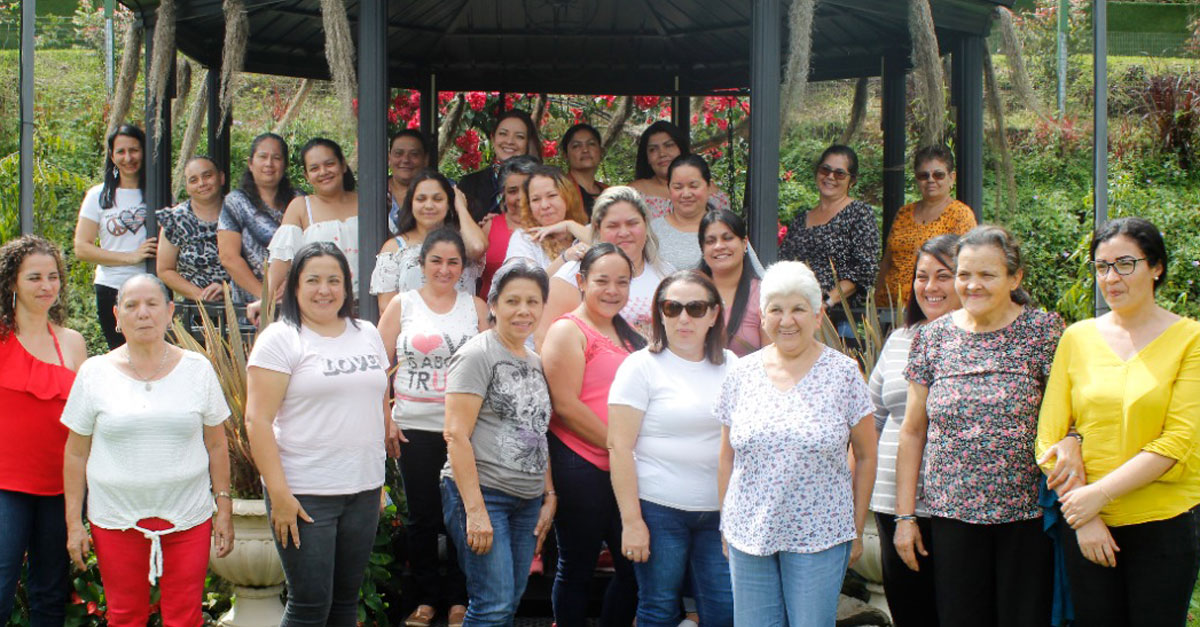NMO name | Asociación Costarricense de Hemofilia |
Location | San José, Costa Rica |
Founding date | 1968 |
Active members | 88 |
PWBDs served | 407 |
Website* |
The following answers have been edited for clarity.
What are the vision and mission of your NMO?
Our mission is to ensure better health and quality of life for all people living with a bleeding disorder in Costa Rica. Our vision is that all Costa Ricans with bleeding disorders have access to comprehensive care, and safe and effective treatment.
What are the challenges you face?
Our main challenge is making our community members more aware of all the different facets of their medical condition, and their rights. We also have a challenge of training healthcare professionals in all regions so that they are aware about bleeding disorders. Another challenge is better integrating patients’ relatives into our organization so that we can be more comprehensive in terms of care. We have been able to overcome some of these challenges by offering educational workshops and by developing educational sessions for professionals.
What was your main achievement in 2022?
Our main accomplishment was opening a dialogue with the Costa Rican Social Security Fund (CCSS), the Hospital México National Center, and the Hospital Nacional de Niños Carlos Sáenz Herrera, to discuss ways to work together. We were able to do this by meeting with the heads of the institutions and discussing our common needs and goals. We learned that by bringing concrete statistics to the table we were able to have productive discussions.
How has the COVID-19 pandemic affected you?
We were affected in the same way many other organizations were: our community was isolated and there was a risk that treatment wouldn’t get to people with bleeding disorders (PWBDs). We got around this by staying in close contact with our members and by providing them with information on how the pandemic would affect logistics processes and how we would get out of the pandemic together.
What services does your NMO offer to the bleeding disorders community?
We offer education; counseling before a medical procedure; support for diagnosis; information to families who are new to our community; financial aid for transportation to medical appointments; and training on the administration of treatment products for at-home prophylactic treatment.
What are the main challenges facing the bleeding disorders community in your country?
Our challenges are access to care outside the Costa Rican Central Valley (around the capital city of San José), lack of diagnosis for von Willebrand disease (VWD), education in public institutions, and lack of employment opportunities for our community. We are trying to surmount these challenges by implementing treatment guidelines at the national level and educating our population on effectively using prophylactic treatment.
How has your experience working with the WFH been?
Working with the WFH has been very beneficial to our community. For example, being affiliated with an international organization like the WFH gives us credibility when we are contacting governmental organizations. Also, the hosting of the WFH World Congress in Costa Rica in 1981 really increased the visibility of bleeding disorders with the government and with healthcare practitioners. And, of course, the sessions at the Congress helped our medical community increase their technical knowledge. In the future, it would be beneficial if WFH experts could do even more to educate our doctors and members about the treatment of bleeding disorders.
Are there any upcoming events/initiatives you want to promote?
We are currently developing a “Hemos Program on Data and Registration” to help provide more information on our community to healthcare practitioners.
Do you have any other comments you want to share?
Thank you for the opportunity to share our successes and challenges with the world. And thank you for facilitating the sharing of learnings between countries.
To read about the way the WFH and NMOs collaborate to make a difference in local bleeding disorders communities, please read “National member organizations: the heartbeat of the WFH” here.
To read about the first article in this series on our Mexican NMO, click here.
* Disclaimer: This is an external website, and its content has not been developed nor endorsed by the WFH.












